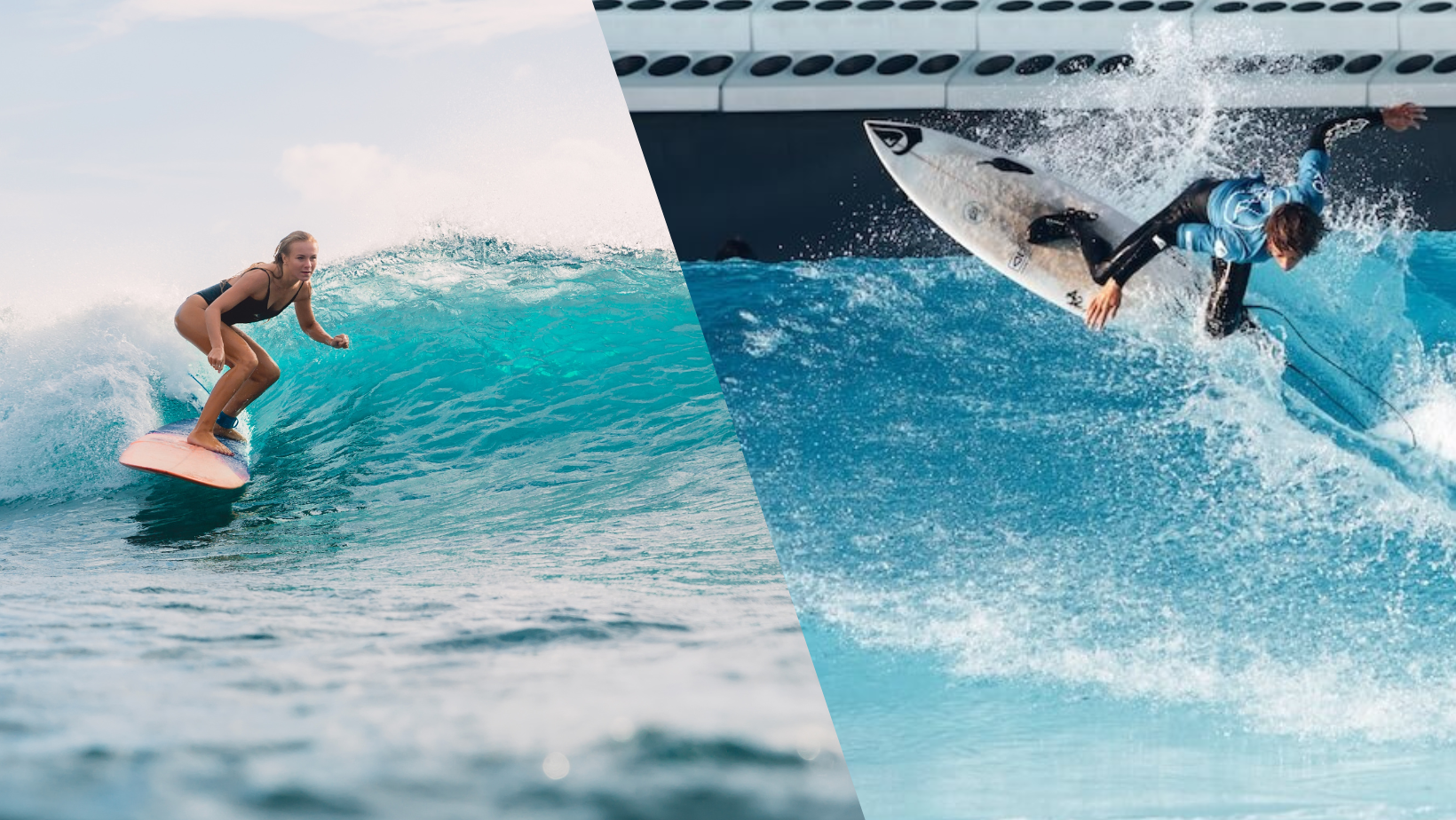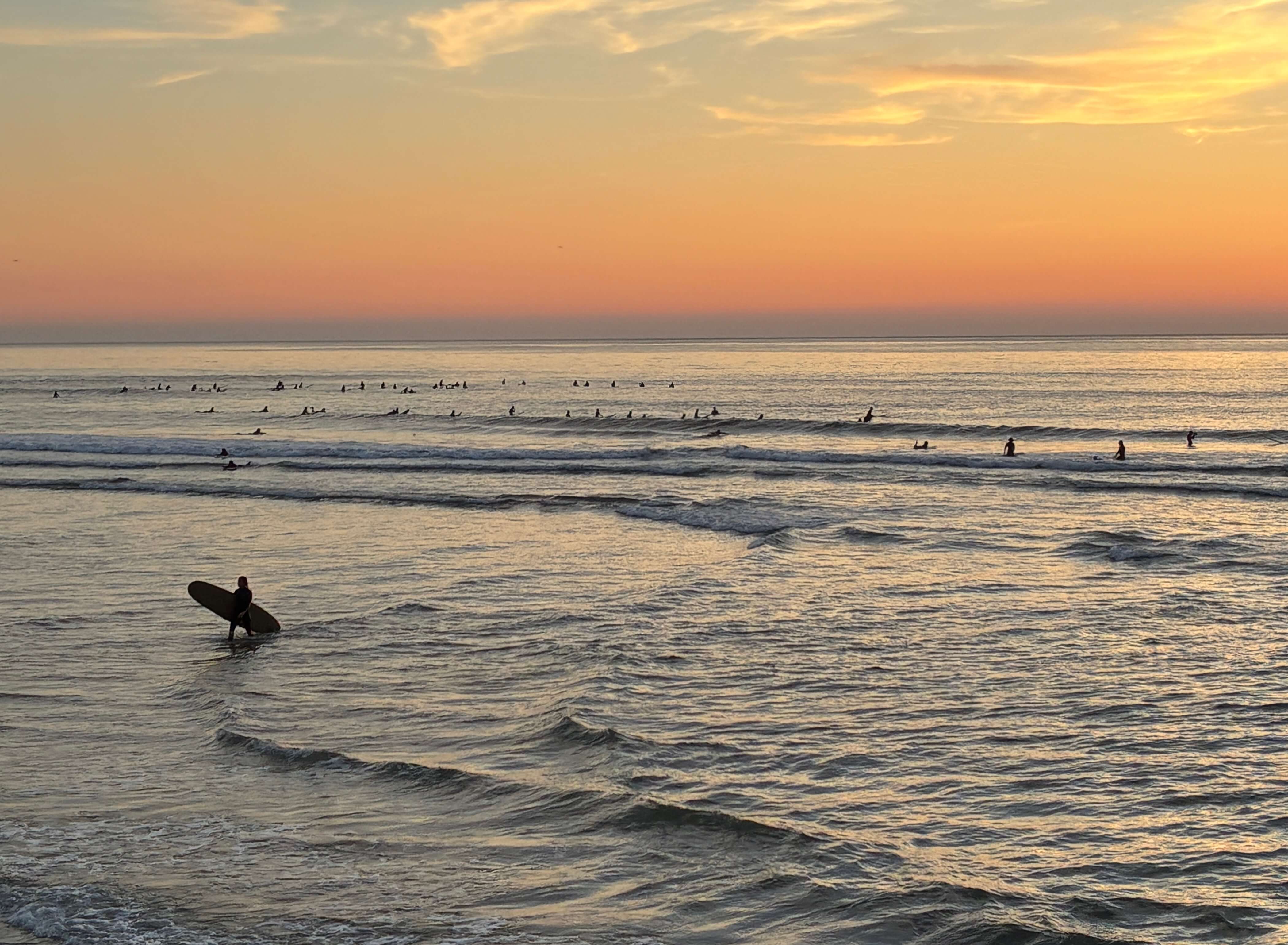
Every time wave pools come up in conversation, people seem to pick sides. Ocean purists roll their eyes and mutter about "artificial waves." Pool enthusiasts get defensive and start rattling off stats about consistency and progression. Meanwhile, local surf schools are watching nervously from the sidelines, wondering if these fancy new wave pools are going to put them out of business.
But here's the thing about the whole wave pool versus ocean debate: It's kind of missing the point.
Let’s be real. Nothing comes close to the ocean. When you paddle out at your local break you’re stepping away from screens and deadlines, and tuning into something bigger. Surfing becomes a form of meditation, where you read the water, try to anticipate the bigger sets, and constantly need to reposition yourself. To catch the best waves, you need to be fully in sync with the ocean, and that connection with nature is what makes it unique.
Every single session is a roll of the dice: You might get barrels, you might get closeouts, you might sit there for an hour without catching anything at all.
That unpredictability teaches you patience, humility, and how to make the most of whatever Mother Nature serves up.
You learn to wait for your wave, to respect the pecking order, to read the subtle signs that tell you when a set's coming.
And yes, you might only catch five waves in two hours. But when you get that one perfect wave….nothing else comes close to that euphoria.
Surfing in the ocean also ties us to one another. The faces you recognise at dawn, the ones with awkward tan lines and sandy car boots, the people who check the forecast as often as their emails. These shared habits shape a community that exists almost without words, built on nods in the lineup and the quiet knowledge that you’re all chasing the same feeling.
That’s why surfing the ocean isn’t just about riding waves; it’s about the connection, the challenges, and the people you share it with.
Wave pools, on the other hand, introduce something completely new: perfect consistency. With the press of a button, surfers know exactly what kind of wave will roll their way. That predictability creates huge value.
Beginners can find a safe, controlled environment for their first attempts, without the intimidation of the 3 Cs: Crowds, currents or closeouts.
Intermediates and advanced surfers can repeat the same manoeuvre dozens of times in a single session, improving much quicker than they would in the ocean.
Beyond training, pools have quickly become destinations in their own right. They resemble ski resorts more than traditional surf breaks. Regulars start to recognise each other in the lineup, and friendships grow around shared sessions. Many pools have cafés or restaurants where you can grab a drink or meal after surfing, and events often turn the space into a gathering point for the whole community.
.jpg)
So both the ocean and wavepools have unique advantages - and most surfers can benefit from both:
A first-time surfer might catch their very first wave in a pool, build confidence through repetition, and then book a trip to a surf camp in Portugal or Nicaragua to experience the ocean for the first time.
Meanwhile, for ocean surfers, a few hours in a pool can accelerate progress and help level up skills that are hard to master in shifting ocean conditions.
Some forward-thinking surf schools and camps have already begun integrating pool training into their offers, creating a hybrid pathway where the pool accelerates skill development and the ocean provides culture and adventure.
The point is clear: these two environments don’t cancel each other out. They strengthen each other. Together, they expand surfing’s reach and accessibility

Instead of arguing about which is "better," smart surf businesses should be mapping out the entire surfer's journey.
Ocean-based schools and camps? Your strength is authenticity. Sell the culture, the connection with nature, the lifestyle, the stories that only come from real waves in real places. Don't worry about pools "stealing" your customers - worry about creating experiences so rich that people become lifelong ocean addicts.
Wave pools? Your superpower is accessibility and progression. You're the place where intimidated beginners become confident surfers. Where ocean surfers come to train. Where families can surf together without anyone worrying about currents or sharks.
Neither environment needs to put down the other. In fact, they should be celebrating each other.
Alaïa Bay in Switzerland gets this. They're not trying to be a cheap knockoff of the ocean; they're positioning themselves as a unique alpine surf destination. Beginners love the predictability. Pros use it for training. Tourists add it to their Swiss adventure itinerary.
Portuguese surf schools continue to lean into authenticity, culture, and the timeless appeal of learning in the sea. At the same time, they benefit when wave pools produce new surfers. Students who arrive at their camps already confident, standing on a board, eager to take on the unpredictability of real waves.
Pacific Surf School in California also shows how the model can evolve. They offer high-touch sessions at the famous Surf Ranch wave pool, combining coaching, video analysis, and logistics like accommodation.
Surf Parks don’t take away from ocean surfing. They expand it. They lower barriers to entry, create new communities, and fuel the pipeline of future surf travellers.
Surf businesses that understand this will stop framing the conversation as a rivalry and start showing how these experiences complement each other.
In the end, surfers aren’t deciding between wave pools and the ocean. They’re choosing moments that connect, challenge, and inspire them. Both environments offer those moments, just in different ways.
The smarter we market that journey, the stronger surfing’s future becomes.